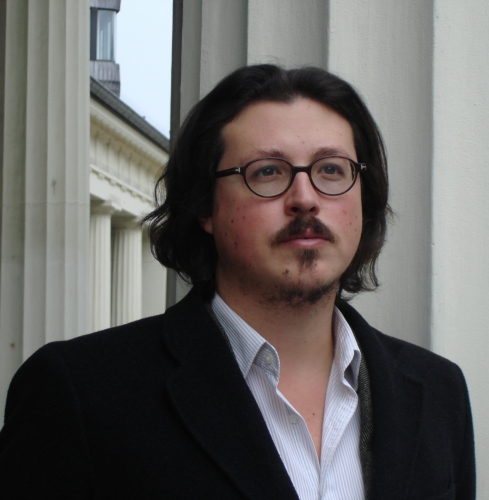Carl Schmitt’s War on Liberalism
Reinhard Mehring, trans. Daniel Steuer, Carl Schmitt: A Biography (Polity Press, 2014), 700 pp., $45.00.
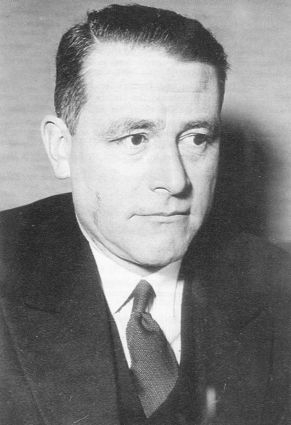 OVER THE past few years, the conviction that the end of the Cold War inaugurated an era of great-power peace to accompany the inevitable spread of democratic capitalism has been shattered. In Georgia and Ukraine, thousands have died as Washington’s attempt to fence in Russia with NATO allies and affiliates has been answered by Moscow’s determination to rebuild a Eurasian sphere of influence. In East Asia, China’s growing assertiveness has alarmed its neighbors and collided with America’s determination to remain the dominant power in the region. Regime-change efforts sponsored by the United States and its allies in Iraq, Libya and Syria have created power vacuums and bloody regional proxy wars, to the benefit of Al Qaeda and the Islamic State.
OVER THE past few years, the conviction that the end of the Cold War inaugurated an era of great-power peace to accompany the inevitable spread of democratic capitalism has been shattered. In Georgia and Ukraine, thousands have died as Washington’s attempt to fence in Russia with NATO allies and affiliates has been answered by Moscow’s determination to rebuild a Eurasian sphere of influence. In East Asia, China’s growing assertiveness has alarmed its neighbors and collided with America’s determination to remain the dominant power in the region. Regime-change efforts sponsored by the United States and its allies in Iraq, Libya and Syria have created power vacuums and bloody regional proxy wars, to the benefit of Al Qaeda and the Islamic State.
In geoeconomics, too, the Pax Americana and the neoliberal version of capitalism are increasingly contested. China, with the help of India, Russia, Brazil and other countries, has sought to organize alternatives to global economic and development institutions like the World Bank and the IMF, which are still dominated by the Western powers. In different ways, Xi Jinping’s China, Vladimir Putin’s Russia and Narendra Modi’s India represent an alternative economic model, in which free markets and state capitalism are blended under strong executive rule.
This moment of crisis for global liberalism coincides with the translation into English of a fresh appraisal of Carl Schmitt, a leading twentieth-century German thinker who, in the course of a long life, was a consistent critic of political and legal liberalism and American hegemony. In Carl Schmitt: A Biography, published in German in 2009 and published in English late last year, Reinhard Mehring, a professor of political science at Heidelberg University of Education, has provided the most thorough study yet of the anfractuosities of the political theorist known to his detractors as “Hitler’s Crown Jurist.”
SCHMITT, WHO was born into a Catholic family in Westphalia in 1888, rose to prominence as a conservative legal academic in the 1920s. His discipline of Staatslehre is much more than narrowly technical “law” or “jurisprudence,” including as it does elements of political philosophy and political science.
Schmitt’s intellectual allies were, by and large, the conservative nationalists of the Weimar Republic, not the more radical Nazis. In his diaries after the Second World War, Schmitt not inaccurately described Hitler as “an entirely empty and unknown individual” who rose “out of the pure lumpenproletariat, from the asylum of a homeless non-education.” However, following Hitler’s seizure of power, Schmitt joined the Nazi Party in May 1933. Thanks to the sponsorship of Hermann Goering, Schmitt was appointed state councilor for Prussia, president of the Union of National Socialist Jurists, editor-in-chief of the German Jurists’ Journal and a professor at the University of Berlin, where he replaced Herman Heller, a Jewish social-democratic legal theorist who had been forced into exile.
At the height of his brief prominence, Schmitt was even received by Mussolini. Schmitt would recall:
I had a longer conversation in private with Mussolini in the Palazzo Venezia on the evening of the Wednesday after Easter. We talked about the relationship between party and state. Mussolini said, with pride and clearly directed against national socialist Germany: “The state is eternal, the party is transient; I am a Hegelian!” I remarked: “Lenin was also a Hegelian, so that I have to allow myself the question: where does Hegel’s world historical spirit reside today? In Rome, in Moscow, or maybe still in Berlin after all?”
Schmitt did not consider the possibility that the world-historical spirit might have taken up residence in Washington, DC.
As Hitler consolidated his tyranny, Schmitt became more abject. He defended Hitler’s Night of the Long Knives on June 30, 1934, and described the anti-Semitic Nuremberg laws against Gentile-Jewish intermarriage as “the constitution of freedom,” even though, according to Mehring, in his youth he had briefly hoped to marry a Jewish woman, Helene Bernstein.
Some of Schmitt’s newly adopted “racial” rhetoric was so excessive—he proposed that the word “Jew” be placed next to the names of Jewish authors in footnotes in legal texts—that some hostile expatriates and devout Nazis alike believed they discerned in his writing not the zeal of the convert, but the cynicism of the opportunist. In 1936, the journal of the SS, Das Schwarze Korps, published several articles questioning his true commitment to Nazi ideology. Schmitt’s friendship with Goering and Hans Frank, who was later hanged for his war crimes as governor-general of German-occupied Poland, saved him from the clutches of the SS. He withdrew into recondite scholarship, which included musings on a Monroe Doctrine for Europe that would justify German expansionism and a history of the alleged struggle among maritime and continental great powers. Detained for a time by the Allies after the war, Schmitt explained: “In 1936, I was publicly defamed by the SS. I knew a few things about the legal, semi-legal and illegal means of power employed by the SS and the circles around Himmler, and I had every reason to fear the interests of the new elite.”
In a legal brief for Friedrich Flick, a German industrialist who had collaborated with the Nazis, Schmitt, having used arguments about the limits of positive law to justify the Hitler regime, opportunistically deployed them to justify war-crimes trials (though preferably not for his client): “Here, all arguments of natural sense, of human feeling, of reason, and of justice concur in a practically elemental way to justify a conviction that requires no positivistic norm in any formal sense.” The Allied occupation authorities were unmoved and imprisoned Flick until 1950, but after detaining Schmitt twice, once for more than a year, they decided that he had been too marginal a member of Hitler’s system for prosecution to be worthwhile.
Like the philosopher Martin Heidegger, who had also disgraced himself by enthusiastically welcoming the Nazi dictatorship when he became rector of Freiburg University in 1933, Schmitt was banned from teaching in German universities from 1945 to his death in 1985. Schmitt nevertheless managed to gather a small coterie of disciples and exercise some influence on German jurisprudence. He continued to write and also had distinguished visitors, including the philosopher Alexandre Kojève. In his old age in his native Plettenberg, Schmitt named his home “San Casciano” after the Tuscan village where Machiavelli spent his final years in exile. In his intellectual diary, the Glossarium, Schmitt bitterly complained: “How harmless were those who sensed the opportunity for intellectual change at the awakening in Germany in 1933, in comparison to those who took intellectual revenge on Germany in 1945.”
In the decades before his death in 1985, Schmitt interpreted current events in terms of what he described and dreaded as “the legal world revolution”—a world order, promoted by the United States and symbolized by the European Union, in which legalistic concepts like human rights and the rule of law became the only source of political legitimacy. What most liberals view as triumphant progress, Schmitt viewed as the disastrous marginalization of continental European statism as an alternative to the maritime liberalism of the Anglo-American world: “World politics reaches its end and is turned into world police—a dubious kind of progress.”
IF SCHMITT were merely one of many German conservatives of the Weimar era who disgraced themselves by collaborating with the Nazis, he would be of interest only to historians. Instead, Schmitt’s reputation as a major thinker endures, sometimes in surprising quarters. American law professors wrestle with Schmitt’s theories about constitutionalism and power, while the Western Left is impressed by his denunciation of liberal globalism as a mask for Anglo-American and capitalist imperialism. In the late twentieth century, the American journal Telos, a meeting place for heterodox leftists and paleoconservatives, helped further the revival of interest in Schmitt’s thought, along with studies by G. L. Ulmen, Joseph J. Bendersky, Gopal Balakrishnan and many others. Some claim, absurdly, that Schmitt influenced the neoconservative movement by way of the political philosopher Leo Strauss, a respectful critic and correspondent in the 1920s.
This interest is justified, because Schmitt is a classic thinker—perhaps the key thinker—of modern antiliberalism. Antiliberalism can be contrasted with preliberalism as a variety of nonliberalism.
Confronted with Enlightenment liberalism in its various versions, preliberalism finds itself at a disadvantage in the battle for modern public opinion, because appeals to preliberal sources of social authority—divine revelations, local customs and traditions—are unlikely to persuade those who are not already believers. Unable to hold their own in debate with liberals, adherents of preliberal worldviews tend to withdraw into sectarianism, which may be defensive and quietist like that of the Amish, or manifested in millenarian violence, like the Salafist jihadism of Al Qaeda and the Islamic State.
In contrast with preliberalism, modern antiliberalism like Schmitt’s seeks to defeat liberal thought on its own chosen ground of public debate, using its own preferred weapons, rational analysis and secular scholarship. It is modern because it takes for granted the post-Enlightenment intellectual environment of secularism and science. And it is antiliberal because it defines itself against modern liberalism, on point after point. It is a reaction to liberalism that would not exist without liberalism—a Counter-Enlightenment, not an ancien régime.
In the Weimar Republic, Schmitt was associated with Catholic conservatives. Relations were strained when he divorced his first of two wives, Pawla Dorotic, whom he met when she was a Spanish dancer in a vaudeville theater. The Vatican was not impressed by his request for an annulment, on the grounds that the Munich-born Protestant dancer had lied to him about having an aristocratic pedigree as the daughter of a Croatian baron. Moreover, according to Mehring, Schmitt did not attend church during the Nazi years.
But those who argue for his lifelong affinity with strains of Catholic reactionary politics can make a good case. Notwithstanding his embrace of Nazi racism, Schmitt’s sympathies lay with Latin authoritarianism rather than Teutonic totalitarianism. His only child, his daughter Anima, born to his second wife, married a Spanish law professor belonging to Franco’s Falangist party, and she translated some of Schmitt’s writings into Spanish. In Political Theology, he praised the nineteenth-century Catholic counterrevolutionary thinker Juan Donoso Cortés. In later life, he understood modern world events in terms of apocalyptic imagery borrowed from Christian thought, including the idea of a “katechon,” a figure who, by maintaining order, delays the end of the world. The katechon might be thought of as Schmitt’s answer to Thomas Hobbes’s metaphor of the Leviathan.
BUT SCHMITT did not think that the answers to modern problems could be found in Thomism or a restoration of papal authority. There was no going back to the Middle Ages. Schmitt embraced modern populism and tried to turn it to antidemocratic, illiberal ends. In his Verfassungslehre (Constitutional Theory) of 1928, for example, Schmitt praised the French revolutionary thinker Abbé Sieyès, author of What is the Third Estate?, for distinguishing between the pouvoir constituant and the pouvoir constitué, the maker of constitutional government and the constitutional government that is made.
The idea that constitutions exist at the will—and for the benefit—of the sovereign people or nation was central to the French and American Revolutions and goes back to the social-contract theory of John Locke and his successors. It was stated not only by Sieyès but also by Thomas Jefferson, in the Declaration of Independence:
That to secure these rights, Governments are instituted among Men, deriving their just powers from the consent of the governed, That whenever any Form of Government becomes destructive of these ends, it is the Right of the People to alter or to abolish it, and to institute new Government, laying its foundations on such principles and organizing its powers in such form, as to them shall seem most likely to effect their Safety and Happiness.
As William E. Scheuerman and Renato Cristi point out in their contributions to a 1998 anthology edited by David Dyzenhaus, Law as Politics: Carl Schmitt’s Critique of Liberalism, Schmitt puts an antiliberal spin on the theory of popular sovereignty. Sieyès, like the American Founders, takes it for granted that the exercise of popular sovereignty operates under constraints, even if it is not constrained by constitutions or statutes. Even when acting in revolutionary fashion, by discarding one government and forming another, a sovereign people cannot violate natural law (in the version found in early modern social-contract theory, that is, not the natural law of premodern Scholasticism). Moreover, in a revolutionary interim between governments, the people are expected to act through representative, consultative bodies, such as constitutional conventions. The sovereign people’s natural, extralegal right of revolution is not an excuse for either communal atrocities or the dictatorship of an individual.
By dispensing with these constraints, Schmitt turns the theory of popular sovereignty into a rationale for Caesarist dictatorship. The cryptic first sentence of Political Theology, “Sovereign is he who decides the exception,” shows that the sovereign people have been conflated with the sovereign executive. Social-contract theorists would have written, “Sovereign are they who decide the exception.”
Schmitt does not mean that any malcontent colonel who manages to carry out a putsch is the “sovereign.” Instead, the sovereign is a charismatic leader who saves the people from danger by acting decisively, outside of the law if necessary. Because the paralysis of parliamentary politics can itself pose a danger to the nation, in the view of Schmitt and other antiliberals, the eighteenth-century French and American method of a quasi-parliamentary constitutional convention to represent the sovereign people must seem to be merely the attempted correction of one weak debating society by another.
The decisive leader creates the new order by deeds, not chatter. The Schmittian leader is a plebiscitarian ruler who can have his actions ratified by the acclamation of a grateful people, but he does not act on their instructions. In his Constitutional Theory, Schmitt argued that “the natural form for the direct expression of the popular will is the yea-saying or nay-saying shout of the assembled crowd.” Cristi notes that Schmitt “comes to accept and recognizes the pouvoir consituant of the people only because he has found a way to disarm it.”
THE “FRIEND/ENEMY” distinction is another original concept in Schmitt’s antiliberalism. All political theories that do not advocate for a global government must have some way of determining who belongs in particular polities and who does not. In deciding on the boundaries of new states formed from the partition of dynastic or colonial empires, the standard in international law has been the so-called Latin American doctrine: the borders of newly independent successor states in general should follow the boundaries, however arbitrary, of administrative or political units within the former, larger state.
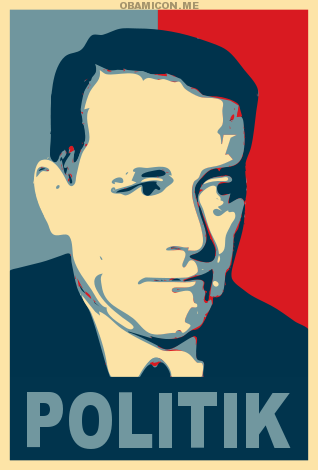 An alternative approach, the so-called Central European approach, favors redrawing arbitrary political boundaries to create more homogeneous ethnic or linguistic groups. Neither doctrine is inherently illiberal. In his Representative Government, John Stuart Mill thus argued that liberal, representative government is most likely to succeed in countries in which most of the citizens share at least a common language, a thesis that the continuing disintegration of multiethnic states in our time would appear to confirm. In Mill’s words, “Free institutions are next to impossible in a country made up of different nationalities. Among a people without fellow-feeling, especially if they read and speak different languages, the united public opinion, necessary to the working of representative government, cannot exist.” Neither approach to defining the citizens of sovereign states equates political independence of one community from another with inherent and unremitting enmity.
An alternative approach, the so-called Central European approach, favors redrawing arbitrary political boundaries to create more homogeneous ethnic or linguistic groups. Neither doctrine is inherently illiberal. In his Representative Government, John Stuart Mill thus argued that liberal, representative government is most likely to succeed in countries in which most of the citizens share at least a common language, a thesis that the continuing disintegration of multiethnic states in our time would appear to confirm. In Mill’s words, “Free institutions are next to impossible in a country made up of different nationalities. Among a people without fellow-feeling, especially if they read and speak different languages, the united public opinion, necessary to the working of representative government, cannot exist.” Neither approach to defining the citizens of sovereign states equates political independence of one community from another with inherent and unremitting enmity.
In keeping with his decisionist approach to law and politics, Schmitt is not interested in adumbrating general rules like these. The people are more than a collection of human beings in a common territory or sharing various characteristics like language and ethnicity. Rather, for Schmitt, the people must have a mystical solidarity defined by the recognition of common public enemies, who may be external or internal or both. The friend/enemy distinction in a particular context, like the exception or state of emergency in a particular situation, by its nature cannot be identified or limited in advance. Rather, it is the essence of great leadership to grasp, at any given time, which approach to legality or its opposite and which set of public enemies is in the interest of the nation.
Schmitt is sometimes compared to Hobbes as an authoritarian thinker. But the temperaments and mentalities of the two were quite different. The Hobbesian sovereign, while prepared for war and anarchy, prefers peace and quiet. Schmitt’s authoritarianism is histrionic and apocalyptic. What is most extreme is most authentic. The exception is the rule. The emergency is the norm. The nation is constantly on the verge of collapse and threatened by enemies without and within. Parliament is the problem, not the solution. The times demand leaders who can take bold and decisive action, not waste time in idle debate. Quoting Schmitt on parliamentary democracy (“The value of life stems not from reasoning; it emerges in a state of war where men inspirited by myths do battle”), Stephen Holmes observed in 1993, “That is Mussolini, not Hobbes.”
Or worse. The potential for toxic interaction among Schmitt’s ideas about mythicized politics and extralegal power is illustrated by his own short and sordid career as a Nazi apologist. Following the Night of the Long Knives, Schmitt published an article entitled “Der Führer schützt das Recht” (“The Führer protects the law”). In identifying and eliminating enemies of the state, “The Führer protects the law against the worst forms of abuse when, in the moment of danger, he immediately creates law by force of his character as Führer as the supreme legal authority.” In that one sentence, Schmitt collapses executive prerogative, martial law and constituent power into arbitrary, uncontrollable tyranny.
REGIMES THAT resemble Nazi Germany in detail are unlikely to appear again. But antiliberalism in some form, in liberal democracies themselves as well as authoritarian states, will be around as long as liberalism endures, deploying arguments like Schmitt’s as weapons.
Defenders of the liberal constitutional tradition would be well advised to respond to those who are antiliberal thinkers like Schmitt in two ways. To begin with, they need to take seriously the challenges to legality and constitutionalism posed by the hard cases that he dwells on. The reply should be that the tradition of constitutional liberalism within itself has the resources to deal with extreme situations, by means of concepts like the natural right of revolution exercised by constitutional conventions, and executive emergency powers which are adequate in their flexibility without being unconstrained by law or legislative oversight. (Schmitt himself distinguishes “commissarial dictatorship,” or emergency measures to save a constitutional order, from “sovereign dictatorship” that creates a new constitution.)
In addition, constitutional liberals can turn the tables on Schmitt by reversing his assignment of strength and weakness. For Schmitt, as for other antiliberals, pluralistic democracy is weak and dictatorship is strong. But one need only contrast West Germany with East Germany during the Cold War, or South Korea and North Korea today, to contest this image of democratic fragility and authoritarian stability. The United States and United Kingdom survived the abortive Nazi empire and the Soviet Union in part because their looser, more consensual systems, with greater opportunities for self-correction by means of dissent and debate, made it easier for them to avoid or recover from strategic blunders.
At this moment in history, there is no significant intellectual challenge to Western liberalism comparable to fascism or Communism, notwithstanding the mixes of liberalism and nonliberalism in China and Russia and the millenarian violence of the preliberal Salafist jihadist movement. But the public philosophy of liberal, constitutional democracy has always left many people, even in its historic homelands, unsatisfied and in search of an alternative. Outside of fundamentalist religious sects, that alternative in generations ahead is likely to be found in some version of modern, secular, antiliberal thought. The greatest challenge to liberalism in the future may not come from outside of the liberal West but rather from within, in the form of reasoned argument by erudite and articulate intellectuals. Carl Schmitt was a model of the sophisticated modern antiliberal thinker. There will be more to come.
Michael Lind is a contributing editor at The National Interest, cofounder of the New America Foundation and an ASU New America Future of War fellow.
Links:
[1] http://nationalinterest.org/feature/carl-schmitt%E2%80%99s-war-liberalism-12704
[2] http://nationalinterest.org/profile/michael-lind
[3] http://twitter.com/share
[4] http://nationalinterest.org/issue/may-june-2015
[5] http://www.amazon.com/Carl-Schmitt-Biography-Reinhard-Mehring/dp/0745652247
[6] http://nationalinterest.org/tag/history
[7] http://nationalinterest.org/tag/nazism
[8] http://nationalinterest.org/tag/liberalism
[9] http://nationalinterest.org/topic/politics




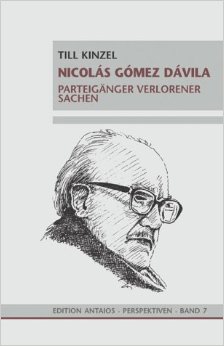 Der Kolumbianer Nicolás Gómez Dávila (1913–1994) bezeichnete sich selbst als »Reaktionär«. Sein Denken ist ein Gegenentwurf zur Neuzeit und Aufklärung. Gómez Dávila stellt alles auf den Prüfstand, was manchem Zeitgenossen lieb und teuer geworden ist. »Automatismen demontieren« kann daher als ein Motto seines Denkens gelten. Zweifellos gehört der Autor zu den bedeutenden politischen Theologen des 20. Jahrhunderts. Daß sein Werk lange Zeit nur einem kleinen Kreis zugänglich gewesen ist, liegt vor allem daran, daß Gómez Dávila sich nie besonders um die Verbreitung gekümmert hat. In den letzten Jahren erleben seine Werke aber immer größere Beachtung.
Der Kolumbianer Nicolás Gómez Dávila (1913–1994) bezeichnete sich selbst als »Reaktionär«. Sein Denken ist ein Gegenentwurf zur Neuzeit und Aufklärung. Gómez Dávila stellt alles auf den Prüfstand, was manchem Zeitgenossen lieb und teuer geworden ist. »Automatismen demontieren« kann daher als ein Motto seines Denkens gelten. Zweifellos gehört der Autor zu den bedeutenden politischen Theologen des 20. Jahrhunderts. Daß sein Werk lange Zeit nur einem kleinen Kreis zugänglich gewesen ist, liegt vor allem daran, daß Gómez Dávila sich nie besonders um die Verbreitung gekümmert hat. In den letzten Jahren erleben seine Werke aber immer größere Beachtung. 
 del.icio.us
del.icio.us
 Digg
Digg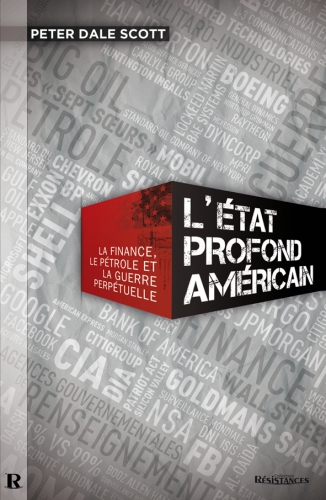 Docteur en sciences politiques et ancien diplomate, le Canadien Peter Dale SCOTT est l’auteur de nombreux ouvrages (dont
Docteur en sciences politiques et ancien diplomate, le Canadien Peter Dale SCOTT est l’auteur de nombreux ouvrages (dont  L’État profond constitue aujourd’hui un système quasi institutionnalisé dans des agences (comme la CIA et la NSA) qui échappent au contrôle démocratique. Mais il ne se limite pas à ces services secrets, et l’auteur décrit notamment l’influence excessive d’entreprises privées telles que Booz Allen Hamilton (l’ex-employeur d’Edward Snowden) et la SAIC, 70 % des budgets du Renseignement aux États-Unis étant aujourd’hui sous-traités.
L’État profond constitue aujourd’hui un système quasi institutionnalisé dans des agences (comme la CIA et la NSA) qui échappent au contrôle démocratique. Mais il ne se limite pas à ces services secrets, et l’auteur décrit notamment l’influence excessive d’entreprises privées telles que Booz Allen Hamilton (l’ex-employeur d’Edward Snowden) et la SAIC, 70 % des budgets du Renseignement aux États-Unis étant aujourd’hui sous-traités.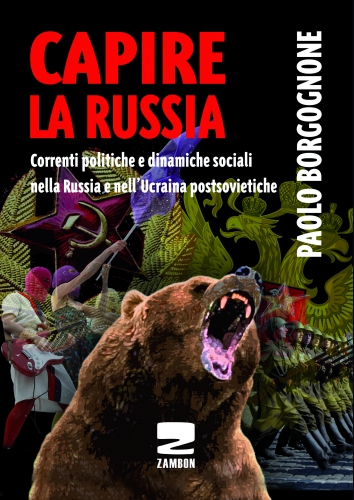

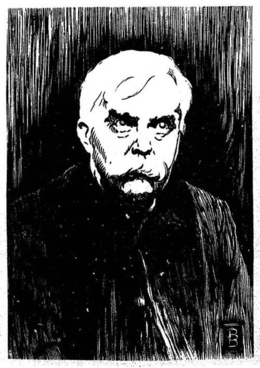 C'est à la date du 9 janvier 1900 que Léon Bloy recopie dans son Journal Le Siècle des Charognes, paru le 4 février de la même année dans le cinquième, et dernier, numéro de Par le scandale. Le texte est dédié à «quelqu'un» sur lequel Bloy ne souffle mot, puisqu'il a dû cesser à cette date d'être l'ami du mendiant ingrat, en fait un certain Édouard Bernaert, poète belge qui fut ami de Léon Bloy, et créateur de l'éphémère revue en question.
C'est à la date du 9 janvier 1900 que Léon Bloy recopie dans son Journal Le Siècle des Charognes, paru le 4 février de la même année dans le cinquième, et dernier, numéro de Par le scandale. Le texte est dédié à «quelqu'un» sur lequel Bloy ne souffle mot, puisqu'il a dû cesser à cette date d'être l'ami du mendiant ingrat, en fait un certain Édouard Bernaert, poète belge qui fut ami de Léon Bloy, et créateur de l'éphémère revue en question. Comme il serait réjouissant, tout de même, qu'un moderne contempteur de baudruches pieuses, crevant de honte à l'idée que, lui-même catholique et pourtant «forcé d'obéir au même pasteur» (p. 18) que les ouailles dégoulinantes de mansuétude, devrait bien finir par reconnaître que les catholiques français, ces cochons, sont bel et bien ses frères ou, du moins, précise immédiatement Léon Bloy, ses «cousins germains» (p. 17), comme il serait drôle et intéressant qu'un tel butor évangélique ose affirmer que les ouvrages publicitaires de Fabrice Hadjadj ne sont rien de plus qu'une amélioration toute superficielle du catéchisme délavé qu'il a pieusement écouté (d'une seule oreille) lorsqu'il était petit, ou bien que
Comme il serait réjouissant, tout de même, qu'un moderne contempteur de baudruches pieuses, crevant de honte à l'idée que, lui-même catholique et pourtant «forcé d'obéir au même pasteur» (p. 18) que les ouailles dégoulinantes de mansuétude, devrait bien finir par reconnaître que les catholiques français, ces cochons, sont bel et bien ses frères ou, du moins, précise immédiatement Léon Bloy, ses «cousins germains» (p. 17), comme il serait drôle et intéressant qu'un tel butor évangélique ose affirmer que les ouvrages publicitaires de Fabrice Hadjadj ne sont rien de plus qu'une amélioration toute superficielle du catéchisme délavé qu'il a pieusement écouté (d'une seule oreille) lorsqu'il était petit, ou bien que 
 Dans Le songe d'Empédocle, Christopher Gérard fait revivre le paganisme naturel et originel européen à la faveur d'un voyage initiatique et romanesque entrepris par un jeune homme de sa génération.
Dans Le songe d'Empédocle, Christopher Gérard fait revivre le paganisme naturel et originel européen à la faveur d'un voyage initiatique et romanesque entrepris par un jeune homme de sa génération. 

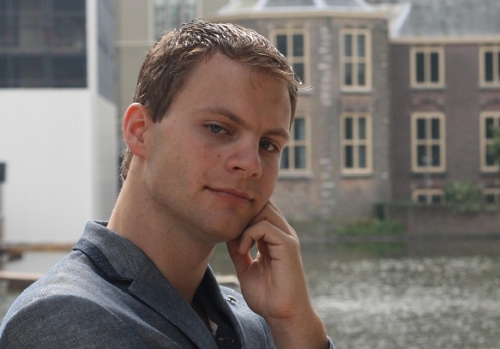
 Het boek Avondland en Identiteit van
Het boek Avondland en Identiteit van 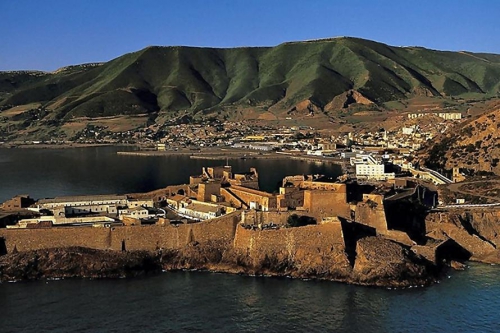
 Pour ceux qui connaissent l'histoire de la Deuxième Guerre mondiale, Mers el-Kébir est le nom tragique des attaques menées par la marine anglaise,
Pour ceux qui connaissent l'histoire de la Deuxième Guerre mondiale, Mers el-Kébir est le nom tragique des attaques menées par la marine anglaise, 
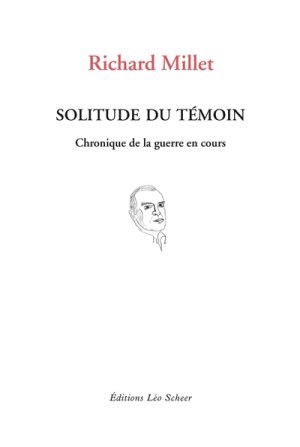 Richard Millet est classé à l'extrême-droite par ceux qui ne l'ont pas lu et se permettent de le juger. C'est le
Richard Millet est classé à l'extrême-droite par ceux qui ne l'ont pas lu et se permettent de le juger. C'est le  OVER THE past few years, the conviction that the end of the Cold War inaugurated an era of great-power peace to accompany the inevitable spread of democratic capitalism has been shattered. In Georgia and Ukraine, thousands have died as Washington’s attempt to fence in Russia with NATO allies and affiliates has been answered by Moscow’s determination to rebuild a Eurasian sphere of influence. In East Asia, China’s growing assertiveness has alarmed its neighbors and collided with America’s determination to remain the dominant power in the region. Regime-change efforts sponsored by the United States and its allies in Iraq, Libya and Syria have created power vacuums and bloody regional proxy wars, to the benefit of Al Qaeda and the Islamic State.
OVER THE past few years, the conviction that the end of the Cold War inaugurated an era of great-power peace to accompany the inevitable spread of democratic capitalism has been shattered. In Georgia and Ukraine, thousands have died as Washington’s attempt to fence in Russia with NATO allies and affiliates has been answered by Moscow’s determination to rebuild a Eurasian sphere of influence. In East Asia, China’s growing assertiveness has alarmed its neighbors and collided with America’s determination to remain the dominant power in the region. Regime-change efforts sponsored by the United States and its allies in Iraq, Libya and Syria have created power vacuums and bloody regional proxy wars, to the benefit of Al Qaeda and the Islamic State. An alternative approach, the so-called Central European approach, favors redrawing arbitrary political boundaries to create more homogeneous ethnic or linguistic groups. Neither doctrine is inherently illiberal. In his Representative Government, John Stuart Mill thus argued that liberal, representative government is most likely to succeed in countries in which most of the citizens share at least a common language, a thesis that the continuing disintegration of multiethnic states in our time would appear to confirm. In Mill’s words, “Free institutions are next to impossible in a country made up of different nationalities. Among a people without fellow-feeling, especially if they read and speak different languages, the united public opinion, necessary to the working of representative government, cannot exist.” Neither approach to defining the citizens of sovereign states equates political independence of one community from another with inherent and unremitting enmity.
An alternative approach, the so-called Central European approach, favors redrawing arbitrary political boundaries to create more homogeneous ethnic or linguistic groups. Neither doctrine is inherently illiberal. In his Representative Government, John Stuart Mill thus argued that liberal, representative government is most likely to succeed in countries in which most of the citizens share at least a common language, a thesis that the continuing disintegration of multiethnic states in our time would appear to confirm. In Mill’s words, “Free institutions are next to impossible in a country made up of different nationalities. Among a people without fellow-feeling, especially if they read and speak different languages, the united public opinion, necessary to the working of representative government, cannot exist.” Neither approach to defining the citizens of sovereign states equates political independence of one community from another with inherent and unremitting enmity.

 Ce qu’a montré magistralement l’économiste et moraliste Bernard Maris dans son dernier livre, paru au même moment que son assassinat (on pense au roman Plateforme), c’est que le cœur des livres de Houellebecq c’est une protestation passionnée, vitale contre la domination de l’économie sur nos vies.
Ce qu’a montré magistralement l’économiste et moraliste Bernard Maris dans son dernier livre, paru au même moment que son assassinat (on pense au roman Plateforme), c’est que le cœur des livres de Houellebecq c’est une protestation passionnée, vitale contre la domination de l’économie sur nos vies. 
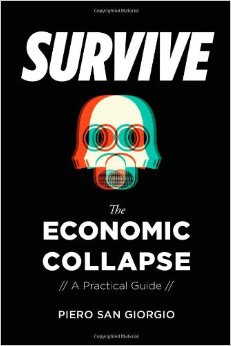 For White Nationalists, the possibility of some of kind of civilizational collapse not only seems plausible, but is also an exciting prospect as it poses an opportunity to make things right again. We know that the current system is cemented together with falsehoods. We can see that the money system is fraudulent. We understand that the “Gods of the Copybook Headings” will one day return with “terror and slaughter.” What made Western Civilization great—true leaders with an ability to plan for the long term—have been abandoned in favor of panderers who appeal to the short-sighted demands of a foolish public. We feel that this trajectory toward ever greater folly cannot last. Surely, it must not last! With this knowledge the question arises: What do we do in the meantime? Perhaps, Swiss author, Piero San Giorgio can help us find an answer.
For White Nationalists, the possibility of some of kind of civilizational collapse not only seems plausible, but is also an exciting prospect as it poses an opportunity to make things right again. We know that the current system is cemented together with falsehoods. We can see that the money system is fraudulent. We understand that the “Gods of the Copybook Headings” will one day return with “terror and slaughter.” What made Western Civilization great—true leaders with an ability to plan for the long term—have been abandoned in favor of panderers who appeal to the short-sighted demands of a foolish public. We feel that this trajectory toward ever greater folly cannot last. Surely, it must not last! With this knowledge the question arises: What do we do in the meantime? Perhaps, Swiss author, Piero San Giorgio can help us find an answer.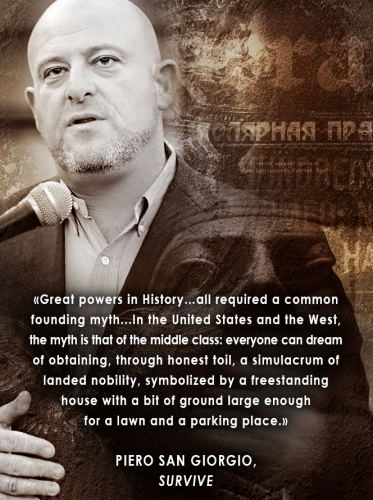
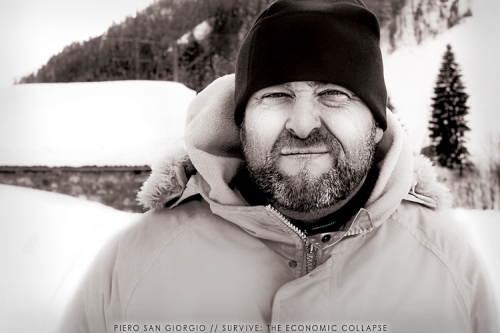
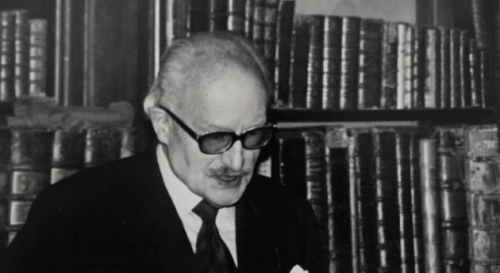
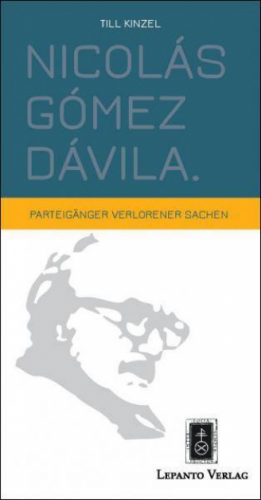 Das wird auch dadurch deutlich, dass erst im Jahre
Das wird auch dadurch deutlich, dass erst im Jahre  Sämtliche Veranstaltungen finden in der
Sämtliche Veranstaltungen finden in der  Im Ukraine-Konflikt haben sich zwei geschlossene Logikkreise herausgeschält. Der Westen sieht in der Ukraine den endgültigen Aufbruch zu Freiheit und Demokratie; Rußland sieht eine Putschregierung unter Beteiligung von Faschisten. Der Westen bezeichnet den Anschluß der Krim als völkerrechtswidrige Annexion; Rußland bezeichnet die Unabhängigkeit des Kosovo als völkerrechtswidrige Sezession. Beide Seiten bezeichnen die Argumente der jeweils anderen als haltlos. Das Ganze spielt zudem vor dem Hintergrund des ersten weltanschaulichen Konflikts in Europa seit dem Ende des Kommunismus. Spätestens 2013 haben sich die russischen Eliten offen von dem säkularen, individualistischen Weltbild der westlichen Demokratien distanziert. Darin werden sie von der überwiegenden Mehrheit der russischen Gesellschaft unterstützt.
Im Ukraine-Konflikt haben sich zwei geschlossene Logikkreise herausgeschält. Der Westen sieht in der Ukraine den endgültigen Aufbruch zu Freiheit und Demokratie; Rußland sieht eine Putschregierung unter Beteiligung von Faschisten. Der Westen bezeichnet den Anschluß der Krim als völkerrechtswidrige Annexion; Rußland bezeichnet die Unabhängigkeit des Kosovo als völkerrechtswidrige Sezession. Beide Seiten bezeichnen die Argumente der jeweils anderen als haltlos. Das Ganze spielt zudem vor dem Hintergrund des ersten weltanschaulichen Konflikts in Europa seit dem Ende des Kommunismus. Spätestens 2013 haben sich die russischen Eliten offen von dem säkularen, individualistischen Weltbild der westlichen Demokratien distanziert. Darin werden sie von der überwiegenden Mehrheit der russischen Gesellschaft unterstützt. 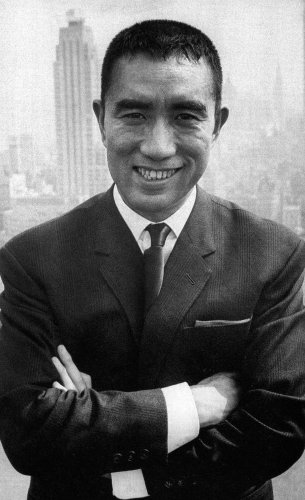
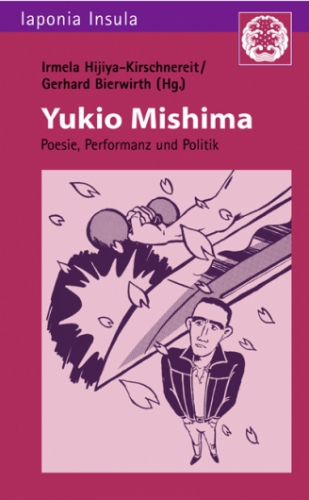 B
B

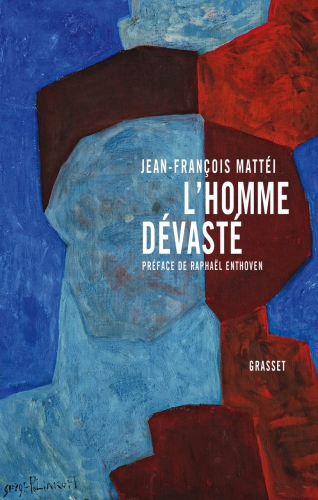 Autant par sa parution posthume que par la portée du projet qui en scelle l’unité, L’homme dévasté de
Autant par sa parution posthume que par la portée du projet qui en scelle l’unité, L’homme dévasté de Le constat de la dévastation de l’homme moderne porte en creux le dépérissement de ce qui fut : une construction de la culture européenne, humaniste, remontant à la Grèce antique. Mattéi retrace les rouages et la cible de la déconstruction, cet anti-humanisme théorique qui a désolidarisé le XXe siècle des fondements de la culture occidentale, annihilant non seulement une certaine pensée « architectonique » mais aussi du même coup les conditions d’accès à un monde doué de sens, lui-même garant de l’humanité . Cible des déconstructeurs, l’idée architectonique qui a longtemps porté la culture européenne connaît effectivement un déclin : un déclin de l’architectonique de la cité induisant celui de l’architectonique de la pensée . Contre la déconstruction et la « barbarie » qu’il y décèle, Mattéi dénonce la stérilité de celle-ci autant que son « mouvement ravageur » qui dénote une tentative « de suppression de la condition humaine dans son imbrication avec le monde » .
Le constat de la dévastation de l’homme moderne porte en creux le dépérissement de ce qui fut : une construction de la culture européenne, humaniste, remontant à la Grèce antique. Mattéi retrace les rouages et la cible de la déconstruction, cet anti-humanisme théorique qui a désolidarisé le XXe siècle des fondements de la culture occidentale, annihilant non seulement une certaine pensée « architectonique » mais aussi du même coup les conditions d’accès à un monde doué de sens, lui-même garant de l’humanité . Cible des déconstructeurs, l’idée architectonique qui a longtemps porté la culture européenne connaît effectivement un déclin : un déclin de l’architectonique de la cité induisant celui de l’architectonique de la pensée . Contre la déconstruction et la « barbarie » qu’il y décèle, Mattéi dénonce la stérilité de celle-ci autant que son « mouvement ravageur » qui dénote une tentative « de suppression de la condition humaine dans son imbrication avec le monde » . Il n’y a plus dans le livre, dans l’homme ou dans les choses ni profondeur ni hauteur, seulement des lignes indécises de segmentation, des tiges superficielles ou des plateaux connectés, puis déconnectés, sans qu’aucun horizon vienne éclairer un monde dévasté.
Il n’y a plus dans le livre, dans l’homme ou dans les choses ni profondeur ni hauteur, seulement des lignes indécises de segmentation, des tiges superficielles ou des plateaux connectés, puis déconnectés, sans qu’aucun horizon vienne éclairer un monde dévasté.  Cible ultime de la déconstruction généralisée, le corps humain parachève ce mouvement de déconstruction, incarnant la figure extrême de la dévastation. Mattéi identifie ce nouveau rapport à la corporéité dans un double mouvement, de régression et de confusion de l’homme avec d’autres formes de vie et, d’autre part, une transgression vers une fusion de l’homme avec les machines : une « défiguration » ou « dénaturation » de l’homme qui conduit à sa destruction ou dévastation . La neutralisation du corps est aussi un des effets de cette déconstruction du corps, que l’on retrouve dans les gender studies : « le corps de l’homme [est] dissous par le discours qui le remplace. » . De la transgression du sexe vers le genre, Mattéi passe à la transgression de l’humain vers le surhumain : ce posthumanisme - qui a tendance à se sublimer en « transhumanisme » - procède à la construction d’un être artificiel, simulant l’homme naturel. Notre monde contemporain est pour Mattéi celui du « dernier homme » que Nietzsche avait annoncé, et le paradoxe de cette évolution en cours est qu’il s’agit bien d’un « projet humain d’en finir paradoxalement avec l’être humain » . La déconstruction théorique de l’humanité se dédouble ainsi en une déconstruction physique de l’homme.
Cible ultime de la déconstruction généralisée, le corps humain parachève ce mouvement de déconstruction, incarnant la figure extrême de la dévastation. Mattéi identifie ce nouveau rapport à la corporéité dans un double mouvement, de régression et de confusion de l’homme avec d’autres formes de vie et, d’autre part, une transgression vers une fusion de l’homme avec les machines : une « défiguration » ou « dénaturation » de l’homme qui conduit à sa destruction ou dévastation . La neutralisation du corps est aussi un des effets de cette déconstruction du corps, que l’on retrouve dans les gender studies : « le corps de l’homme [est] dissous par le discours qui le remplace. » . De la transgression du sexe vers le genre, Mattéi passe à la transgression de l’humain vers le surhumain : ce posthumanisme - qui a tendance à se sublimer en « transhumanisme » - procède à la construction d’un être artificiel, simulant l’homme naturel. Notre monde contemporain est pour Mattéi celui du « dernier homme » que Nietzsche avait annoncé, et le paradoxe de cette évolution en cours est qu’il s’agit bien d’un « projet humain d’en finir paradoxalement avec l’être humain » . La déconstruction théorique de l’humanité se dédouble ainsi en une déconstruction physique de l’homme.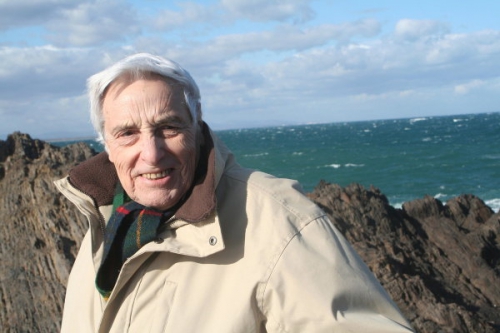

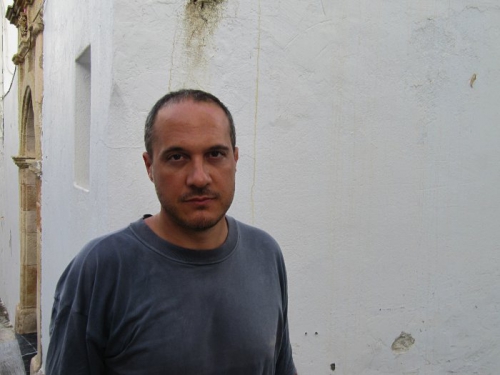
 On n’en finit pas de revivre les « années de plomb » en Italie. Là-bas, entre 1968 et 1975, au lieu de mastiquer des marguerites comme tout le monde, jeunes fascistes et jeunes gauchistes se sont livrés à une guerre acharnée. Rien à voir avec les révolutionnaires parisiens de l’époque dont le bla-bla sentencieux endormait jusqu’aux fleurs. Chez nous, on jouait à la révolution. Chez eux, c’était la guerre. De Lotta nazionale, jusqu’aux Brigades rouges, on avalait chaque matin du chien-loup en brochette sur des barbelés. Les vieux de chaque bord étaient maudits. La nostalgie geignarde du passé impérial, des Chemises noires et du salut romain exaspéraient les jeunes fascistes qui vouaient, en revanche, un culte à Mussolini. Même chose en face : les dinosaures du Parti communiste étaient maudits, tandis que Staline, Lénine ou Mao, les vrais monstres, restaient d’indéboulonnables idoles.
On n’en finit pas de revivre les « années de plomb » en Italie. Là-bas, entre 1968 et 1975, au lieu de mastiquer des marguerites comme tout le monde, jeunes fascistes et jeunes gauchistes se sont livrés à une guerre acharnée. Rien à voir avec les révolutionnaires parisiens de l’époque dont le bla-bla sentencieux endormait jusqu’aux fleurs. Chez nous, on jouait à la révolution. Chez eux, c’était la guerre. De Lotta nazionale, jusqu’aux Brigades rouges, on avalait chaque matin du chien-loup en brochette sur des barbelés. Les vieux de chaque bord étaient maudits. La nostalgie geignarde du passé impérial, des Chemises noires et du salut romain exaspéraient les jeunes fascistes qui vouaient, en revanche, un culte à Mussolini. Même chose en face : les dinosaures du Parti communiste étaient maudits, tandis que Staline, Lénine ou Mao, les vrais monstres, restaient d’indéboulonnables idoles.




